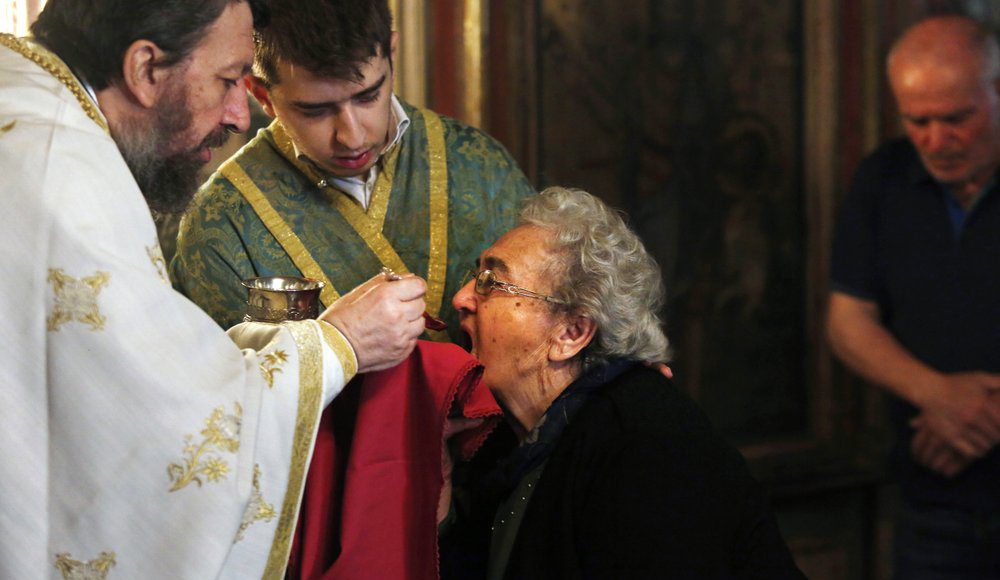One by one, the children and adults line up for the centuries-old ritual of Holy Communion, trying to keep a proper social distance.
Contrary to science, the Greek Orthodox Church insists it is impossible for any disease — including the coronavirus — to be transmitted through Holy Communion.
“In the holy chalice, it isn’t bread and wine. It is the body and blood of Christ,” said the Rev. Georgios Milkas, a theologian in the northern city of Thessaloniki. “And there is not a shred of suspicion of transmitting this virus, this disease, as in the holy chalice there is the Son and the Word of God.”
This is proven, he said, through “the experience of centuries.”
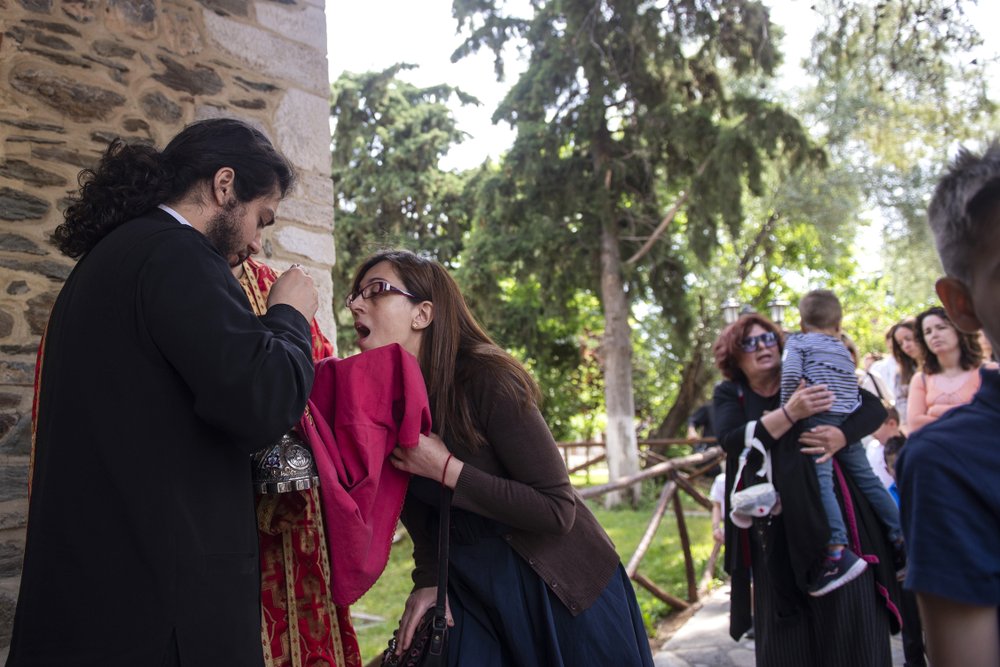
Scientists warn that shared utensils can spread the coronavirus, and they also point to outbreaks linked to religious services around the world.
A communal spoon presents “fairly significant dangers,” said Dr. Nathalie MacDermott, an academic clinical lecturer for Britain’s National Institute for Health Research at King’s College London.
“The danger of transmitting any kind of respiratory viral pathogen or even bacterial infections is quite high with the sharing of utensils,” she said. “And for it to be passed among what is probably a relatively large group of people means that all it would take is one person to have coronavirus at the back of their throat, which potentially is in their saliva as well.”
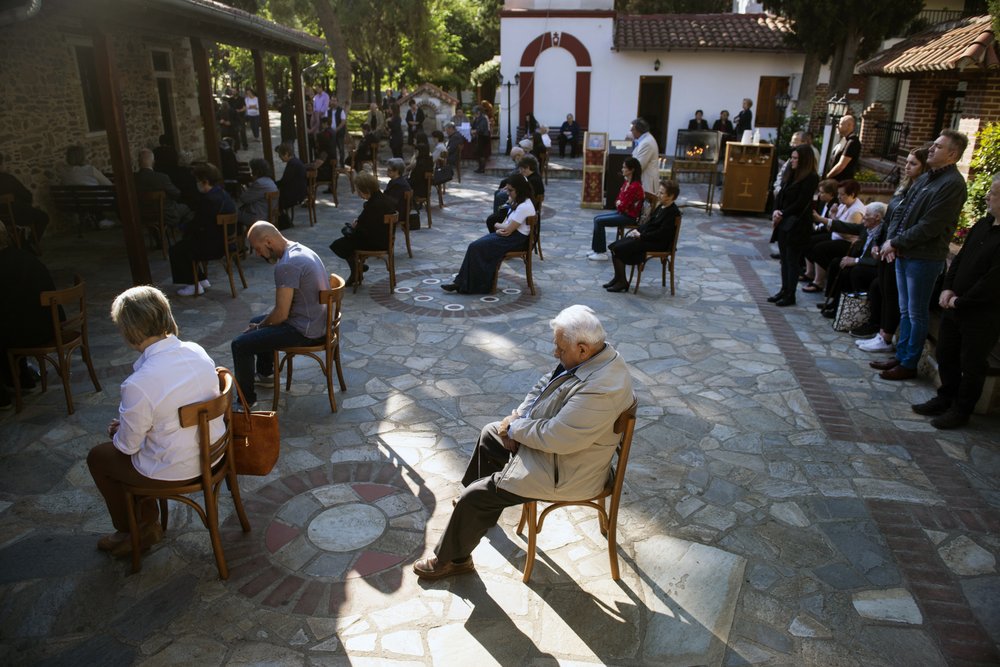
The Holy Synod, the church’s governing body, says any suggestion that illness or disease could be transmitted by Holy Communion is blasphemy, a stance echoed by the Church of Cyprus.
“Regarding the issue that is unjustifiably raised from time to time about the supposed dangers, which in these blasphemous views are said to lurk in the life-giving Mystery of Holy Communion, the Holy Synod of the Church of Greece expresses its bitterness, deep sorrow and diametrical opposition,” it said in a May 13 circular on social distancing measures in churches.
The Synod “underlines one more time to all those who, either due to ignorance or conscious faithlessness, brutally insult all that is holy and sacred, the dogmas and the sacred rules of our faith, that Holy Communion is ‘the medicine of immortality, antidote to not dying, but to living according to the teachings of Jesus Christ forever.’”
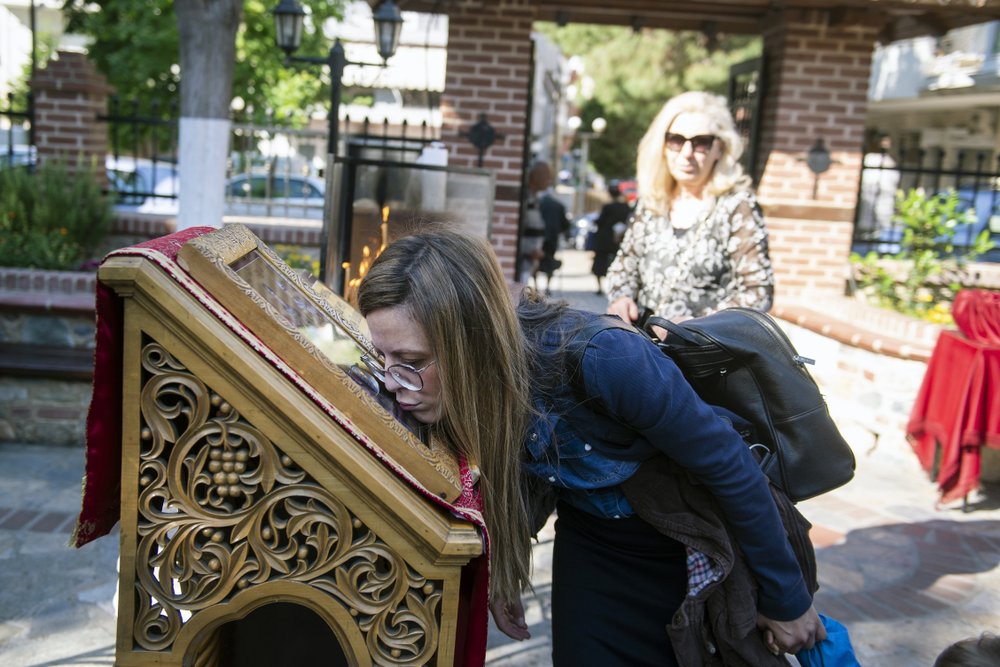
Whether Holy Communion should be changed or suspended for health reasons has become a hot button issue across much of the Christian Orthodox world, with churches generally refusing to bow to pressure from governments and scientists.
Greece imposed a lockdown early on, a move credited with curbing infections. The country has reported 175 deaths and 2,900 confirmed cases.
With the coronavirus running through Easter, the most important religious holiday for Christians, the inability to attend services weighed heavily on many.
When it was lifted May 17, thousands flocked to church.
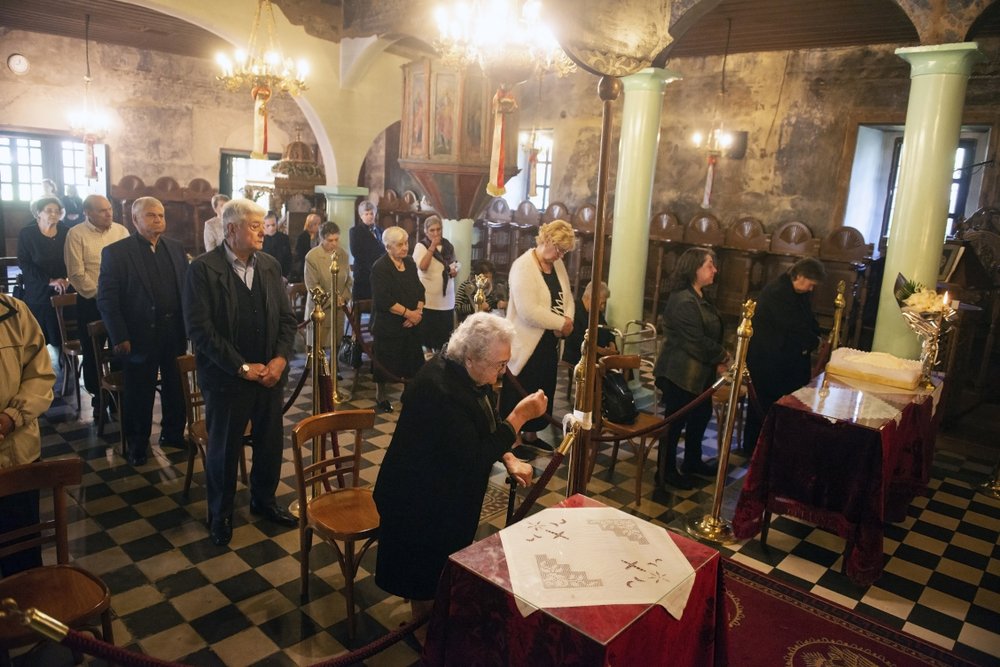
“The issue of Holy Communion in particular is the only red line of the church and of the faithful in our souls,” said 19-year-old Michalis Gkolemis, attending services in Thessaloniki. “We don’t say that Holy Communion is the cure for all diseases, from the flu, for example, but we say that you cannot get sick by receiving Communion. You can’t catch a virus, something which isn’t proven scientifically but exists through experience.”
After ordering churches closed, the government has been more circumspect and has avoided the sensitive issue of Holy Communion.
“This is a matter of public health concern,” said Dr. Gkikas Magiorkinis, assistant professor of hygiene and epidemiology at the University of Athens. “As an epidemiologist, I would like to be able to reduce the risk of transmission.”
Sourced By: Associated Press. Read Full Story HERE
